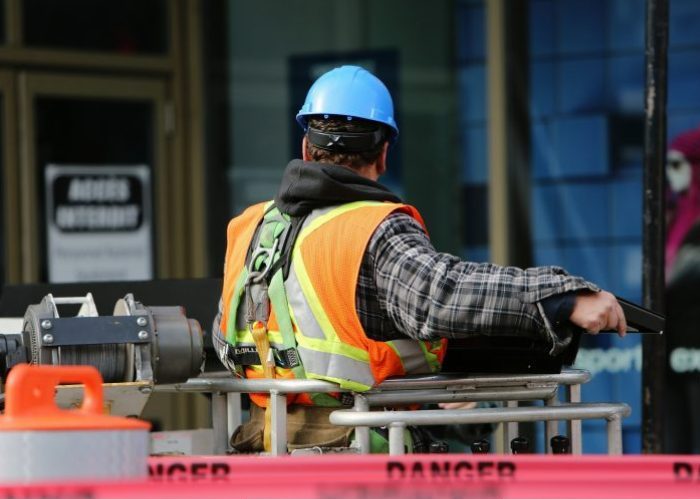
Howden Employee Benefits & Wellness are calling for more action by employers
It’s World Mental Health Day on 10th October, an annual awareness day organised by the World Health Organization (WHO). This year’s theme is suicide prevention.
Every 40 seconds, someone around the world loses their life to suicide. Suicide affects people of all age groups in all countries and is the second leading cause of death among 15-29-year-olds. In the UK recent figures from the Office for National Statistics[i][1] highlighted that the rate of suicide has a hit a 16-year high, after surging in the past year following a period of decade of decline. 6,507 suicides were registered last year, marking a 12 per cent rise on the previous year and the highest rate since 2002.
Men continue to account for three-quarters of suicide deaths in 2018, with 4,903 deaths compared with 1,604 female deaths.
Cheryl Brennan, Director of Corporate Consulting at Howden Employee Benefits & Wellbeing urges employers in the sector to use this annual awareness event to address mental health within their organisations.
‘In the construction sector, suicide is a very real issue. More than one worker a day takes their own life – three times the national rate for men[2] and much higher than the number of workers who die by fall.’
In addition, a recent survey highlighted that 34% of construction workers had experienced a mental health condition in the last 12 months and 73% felt that their employers do not recognise the early signs of mental health problems.
Brennan added:
‘These statistics are alarming and present a compelling reason for employers to invest in employees’ mental health and overall wellbeing.’
What is the driving force behind the poor mental health of construction workers?
The lifestyle of those working in the sector can be challenging and stressful. Many work long and demanding hours to meet project deadlines and requirements, and can often be away from home for significant periods of time.
In addition, for some the transient nature of construction work can cause tension and financial anxiety as workers look to line up their next job. This type of lack of routine can cause feelings of isolation. In some cases, excessive drinking, drugs and gambling may be used as coping mechanisms
The industry also has a predominantly male workforce and there is a stigma around talking about emotions. Research has shown that not only are men far less likely than women to seek professional support, they are also less likely to disclose a mental health problem to friends and family.
What can employers do?
The sector knows that it needs to do more to tackle poor mental health and bring about positive change. One important industry initiative is Mates in Mind. Established by the Health in Construction Leadership Group (HCLG) with the support of the British Safety Council in September 2016, Mates in Mind aims to provide clear information to employers on available support and guidance on mental health and how they can address this within their organisations.
Brennan suggests that practical steps employers can take to improve workplace mental wellbeing include:
- Understand your workforce – what works for one company won’t necessarily work for yours. Profile your workforce and take the time to understand what they will or won’t respond to.
- Increase awareness – recognising that we all have mental health and need to look after it can help to normalise the conversation.
- Implement a defined, evidence-based wellbeing strategy
- Make sure people know what support is available – whether it’s on-site mental health representatives, an employee assistance programme or support from organisations such as the Samaritans, signpost people to the help available on a regular basis
- Break the stigma – Make it ok to talk about not being ok so that it becomes commonplace within your culture.
- Provide easily accessible tools such as EAPs or helplines so that workers have a convenient and discrete way to proactively look after their mental wellbeing and can speak to a someone when they need to.
Cheryl Brennan concludes:
‘The culture of a company matters and is the foundation of any successful mental wellbeing programme, and managers and leaders play a key role in this. For most employees, the relationship with their manager is a major factor in their wellbeing, and also how likely they are to be open about any concerns. Supporting managers/project managers in the development of awareness, skills and the confidence needed to manage mental health within the workplace should be a major component of any strategy.’
Howden Employee Benefits & Wellbeing are hosting a mental health event exclusively for the construction sector on 21st November. Expert speakers will include David White (Director of Assurance, Galliford Try) and Sandra Winters (Occupational Health and Workforce Wellbeing Manager, Costain Skanska HS2 EWC). https://info.pshp.co.uk/mentalhealthinconstruction
[1] https://www.independent.co.uk/news/uk/home-news/suicide-uk-rise-deaths-mental-health-office-national-statistics-a9089631.html
[2] Office of National Statistics – Suicide by occupation, England: 2011 to 2015



